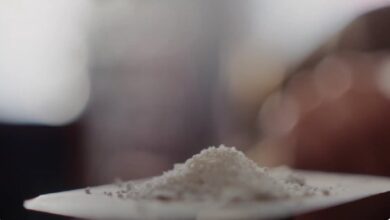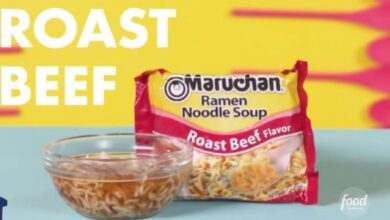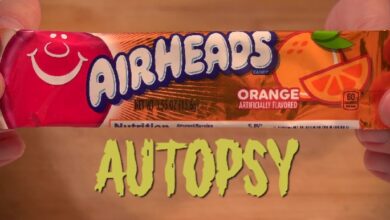Is Cheetos Halal
Cheetos, the beloved cheesy snack, has been a topic of debate within the Muslim community regarding its halal status. Whether or not Cheetos are halal depends on several factors, including the specific product variant, the ingredients used, and the manufacturing processes. This article will delve into the details, helping you understand whether Cheetos align with Islamic dietary laws.

Introduction
Cheetos are a globally popular snack known for their distinctive cheese flavor and crunchy texture. However, for Muslims adhering to halal dietary guidelines, the question arises: Is Cheetos halal? The answer isn’t straightforward, as it varies based on regional manufacturing processes and ingredient sources. This article explores the halal status of various Cheetos products, including Cheetos Puffs and Flamin’ Hot Cheetos, providing a comprehensive guide to help you make an informed decision.
Understanding Halal Certification
Halal certification ensures that food products adhere to Islamic dietary laws. This certification process examines the ingredients and the manufacturing process to ensure no non-halal substances, such as pork or alcohol, are involved. The presence of halal certification on a product provides assurance to Muslim consumers about its permissibility.
Ingredients and Manufacturing
Key Ingredients
- Cornmeal: Generally considered halal, as it is derived from corn.
- Vegetable Oil: The source of the vegetable oil is crucial. Oils from halal sources like sunflower or olive are permissible.
- Cheese Flavoring: Raises questions due to the potential use of non-halal enzymes or rennet in cheese production.
- Salt: Universally halal.
- Whey Protein Concentrate: Its halal status depends on its source, with plant-based or halal-certified animal sources being acceptable.
- Monosodium Glutamate (MSG): Requires attention to its source but is generally considered halal if derived from halal sources.
Potential Concerns
- Animal Enzymes and Rennet: These are often used in cheese production. If derived from non-halal sources, they render the product non-halal.
- Cross-Contamination: Manufacturing processes must prevent contamination with non-halal substances. Rigorous halal certification protocols help ensure compliance.
Halal Status by Region
United States
In the US, Cheetos’ halal status is often questionable due to the potential use of non-halal enzymes and rennet in cheese production. It’s crucial to check for halal certification on the packaging.
Muslim-Majority Countries
In countries like Saudi Arabia, UAE, and Pakistan, Cheetos are generally halal. Manufacturers in these regions often adapt their processes to comply with local halal standards, ensuring that the products meet Islamic dietary laws.
Other Regions
In regions such as the UK, Australia, Canada, and India, the halal status of Cheetos varies. It’s essential to verify with the manufacturer or check for halal certification on the packaging.
Popular Cheetos Products
Cheetos Puffs
Cheetos Puffs are popular for their light, airy texture and cheesy flavor. The halal status depends on the ingredients used, particularly the source of cheese flavoring and any potential use of animal enzymes.
Flamin’ Hot Cheetos
Flamin’ Hot Cheetos are known for their spicy kick. Their ingredients include enriched cornmeal, vegetable oil, flamin’ hot seasoning, whey protein concentrate, and artificial colorings. The halal status hinges on the sources of these ingredients and the manufacturing process.
Where to Buy Halal Cheetos
To ensure you are purchasing halal Cheetos, look for products with reputable halal certification symbols. These can typically be found in supermarkets and online stores in Muslim-majority countries. In non-Muslim countries, specialized halal stores or sections in larger supermarkets might carry certified halal Cheetos.
Conclusion
Determining whether Cheetos are halal involves examining the ingredients and manufacturing processes. While Cheetos are generally considered halal in many Muslim-majority countries due to adherence to local halal standards, their status in the US and other regions can vary. Muslim consumers are advised to look for halal certification on the packaging and consult with knowledgeable Islamic scholars or trusted halal certification bodies for guidance.

Frequently Asked Questions (FAQs)
Are Cheetos halal in the USA?
Generally, Cheetos are not considered halal in the USA due to the presence of animal enzymes and rennet from non-halal sources.
Are all flavors of Cheetos halal?
Not all flavors are halal. It’s important to check the ingredients and look for halal certification on the packaging.
Can Sunni Muslims consume Cheetos?
Sunni Muslims can consume Cheetos if they are made with halal ingredients and comply with dietary restrictions.
Are Cheetos halal in Muslim countries?
Yes, in countries like Saudi Arabia, UAE, and Pakistan, Cheetos are produced according to halal standards and are considered halal.
What are some common non-halal ingredients in snacks?
Common non-halal ingredients include gelatin and certain food colorings derived from non-halal sources.
How can I identify halal Cheetos?
Look for reputable halal certification symbols on the packaging and verify the ingredients.
Is the “cheese” flavor in Cheetos halal?
The halal status of the cheese flavor depends on the source of the enzymes and rennet used in its production.
Are there halal alternatives to Cheetos?
Yes, several brands offer halal-certified snack alternatives catering to diverse tastes.
What should I consider when buying Cheetos in non-Muslim countries?
Verify the ingredients and look for halal certification. Consulting with local halal certification bodies can also help.
Are Cheetos suitable for consumption by Muslims?
Cheetos can be suitable for Muslims if they are made with halal ingredients and comply with halal standards.
Do Cheetos contain pork?
Traditional Cheetos do not contain pork, but the presence of animal-derived enzymes can make them non-halal.
How does the manufacturing process affect the halal status of Cheetos?
Cross-contamination with non-halal substances during manufacturing can affect the halal status. Rigorous certification protocols help ensure compliance.
Are there any health concerns with consuming Cheetos?
Cheetos are high in calories, fat, and sodium and should be consumed in moderation as part of a balanced diet.
How can I deepen my understanding of halal dietary guidelines?
Consult local Islamic scholars or halal certification organizations for detailed guidance on halal dietary practices.
Where can I find more information on halal and haram foods?
Trusted Islamic resources, halal certification bodies, and knowledgeable scholars can provide reliable information on halal and haram foods.
Read also:





